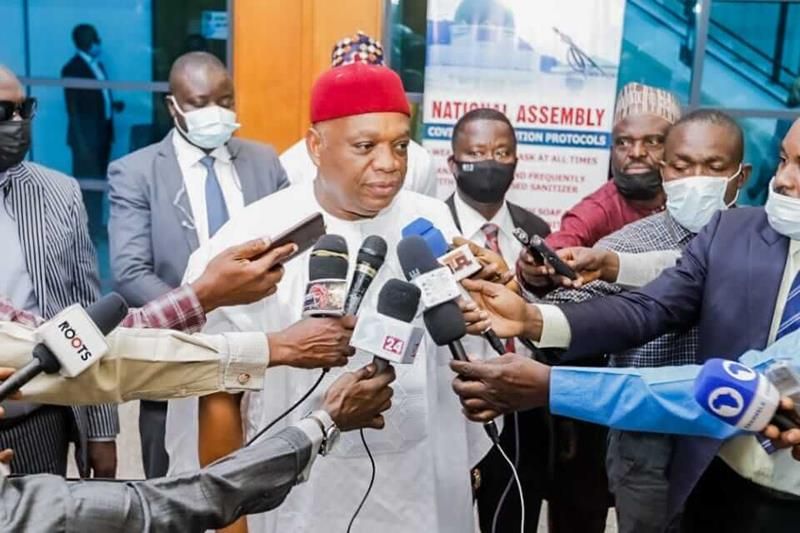
1. Institutional Continuity and Developmental Pragmatism
The trajectory of Orji Uzor Kalu’s governance philosophy reflects what political scientists often describe as path dependency—a situation where earlier policy orientations shape and constrain later choices. His gubernatorial emphasis on infrastructure, fiscal prudence, and grassroots empowerment created a developmental framework that he has consistently carried into his senatorial role. This continuity demonstrates a pragmatic orientation toward governance, privileging tangible outcomes such as roads, schools, hospitals, and empowerment programs over abstract ideological debates. Such pragmatism aligns with developmental state theories, which argue that infrastructural modernization and disciplined resource management are prerequisites for economic growth in emerging economies.
2. Grassroots Empowerment as a Political Constant
Kalu’s policies reveal a deliberate prioritization of community-based initiatives. As governor, his support for vigilante groups like the Bakassi Boys was not merely a security measure but an acknowledgment of the role local communities play in sustaining economic activity. As senator, his emphasis on youth empowerment, scholarships, and vocational training continues this grassroots orientation. This reflects a consistent belief in bottom-up development, where local empowerment is seen as the foundation for broader economic revitalization. In political economy terms, this approach strengthens social capital and fosters inclusive growth.
3. Fiscal Prudence and Resource Management
Kalu’s repeated claims of saving funds for Abia State and his senatorial advocacy for fiscal responsibility illustrate a coherent philosophy of disciplined resource use. In governance studies, fiscal prudence is often linked to sustainable development, as it ensures that infrastructural investments are not undermined by debt crises or mismanagement. His insistence on financial discipline situates him within a tradition of leaders who view resource conservation as essential to long-term stability and growth.
4. Security-Economy Nexus
The linkage between security and economic development is a recurring theme in Kalu’s philosophy. His gubernatorial reliance on community vigilante groups and his senatorial calls for community-driven solutions to insecurity both reflect an understanding that economic growth cannot occur in contexts of instability. This perspective resonates with development literature that emphasizes the security-development nexus, where peace and stability are seen as preconditions for investment, commerce, and industrial revitalization.
5. Philosophical Consistency Across Roles
The thematic consistency between Kalu’s gubernatorial and senatorial priorities underscores a coherent political philosophy centered on:
• Pragmatism: measurable, tangible projects over rhetoric.
• Grassroots orientation: prioritizing local needs and empowerment.
• Fiscal responsibility: disciplined use of resources.
• Security-economy linkage: stability as a foundation for growth.
This continuity suggests that his political philosophy is not opportunistic but deeply rooted in a developmental vision for Abia State and Nigeria at large.
Conclusion
In scholarly terms, Orji Uzor Kalu’s governance trajectory exemplifies a developmentalist orientation that integrates infrastructure, fiscal prudence, grassroots empowerment, and security into a coherent framework. His policies as governor laid the institutional and philosophical foundation for his senatorial priorities, demonstrating a rare consistency in Nigerian politics where leaders often shift focus with changing offices. While debates about effectiveness remain valid, the logical continuity of his philosophy underscores a long-standing belief that disciplined resource management, infrastructural modernization, and community empowerment are indispensable for sustainable economic growth.

